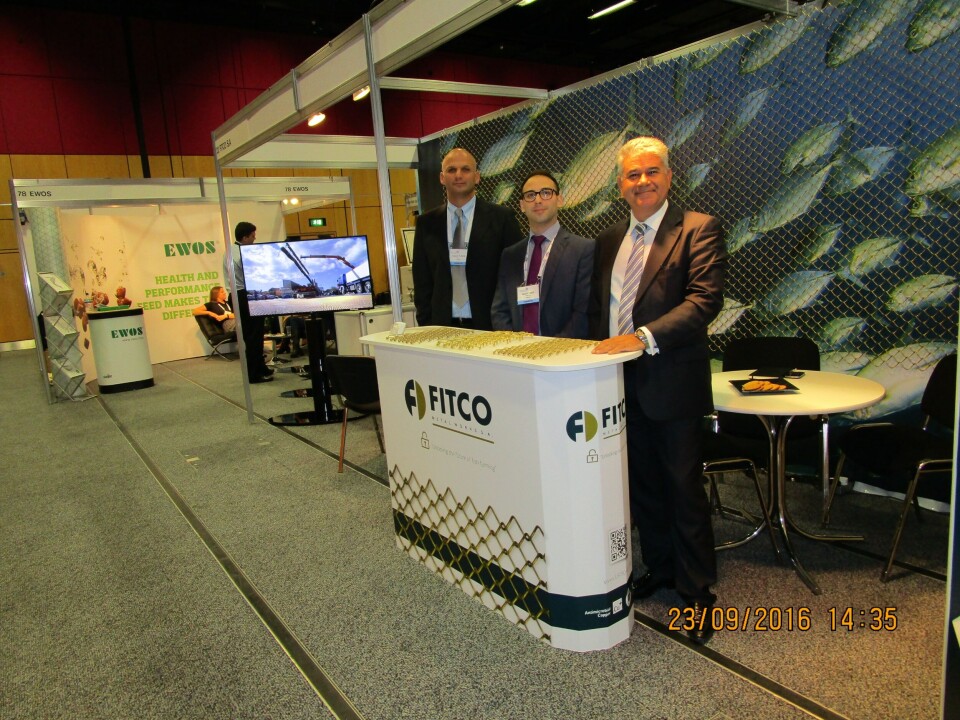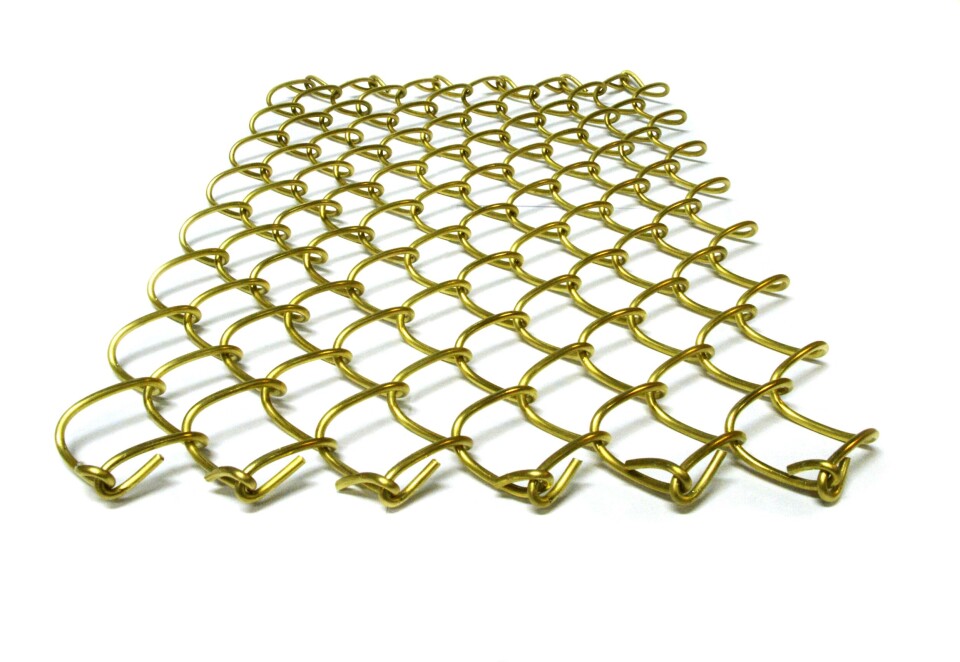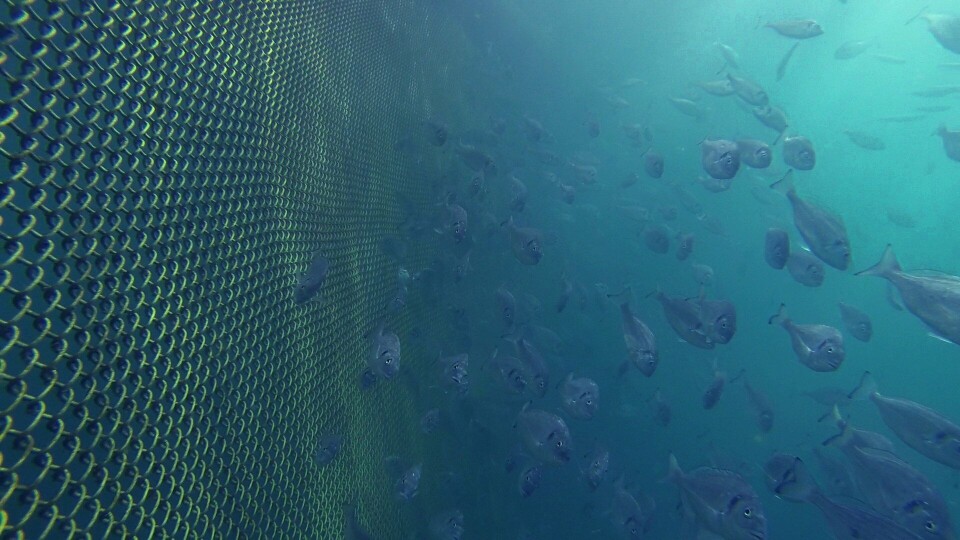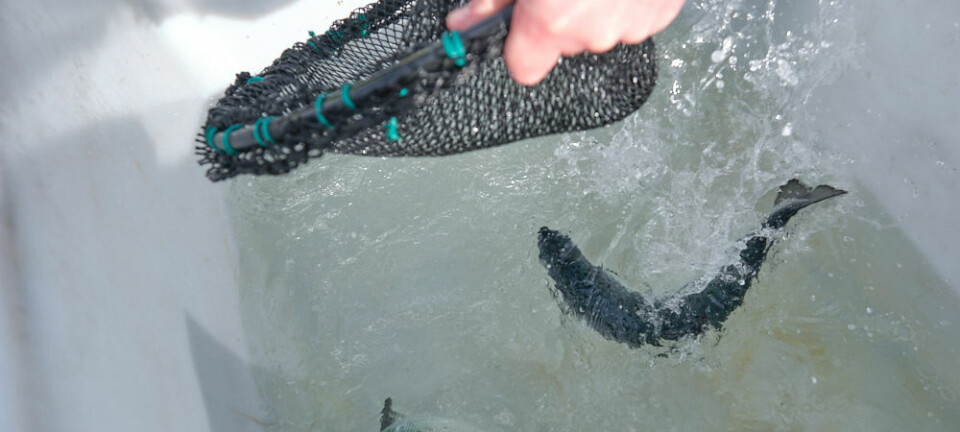
Copper nets seek to snag Scots business
A number of Scottish salmon producers will be using copper alloy nets “within a few months”.
So claims Nick Kotsios, Business Development Manager at Fitco – a company that makes and supplies copper alloy nets – who was promoting the material at AE2016 in Edinburgh last week.
“Over 500 of these nets are currently in use around the world,” he told Fish Farming Expert, “including by salmon farmers in Tasmania, Chile and Japan. And we’re confident that a number of Scottish salmon producers will be using them in the next few months.”
As he explained: “There is a great interest shown by Scottish companies as copper naturally inhibits biofouling, our UR30 copper alloy net cages will enable better water flow circulation and higher dissolved oxygen levels, reducing pen fouling and decreasing the number of parasites and disease organisms. As a result, installation of our nets will lead to increased SGRs, lower mortality rates and improved FCRs.”

Nick points out that the company, which bought the patent rights for the material from Mitsubishi Shindoh in 2012, could be confident of increasing its sales, following compelling production results.
“Now that farmers have completed their first cycles in the nets since we took over the net provision, we can assure them that many of the perceived problems of the nets – such as concerns that they are hard to operate, and difficult to harvest fish from – are not true,” he continued.
Meanwhile, according to Nick, the nets have a number of other key advantages over alternative materials.
“They don’t need to be treated with anitfoulant, which is good for the environment, and also means that farms using them can enter into schemes [such as organic certification] that require that antifoulant is not used,” he says.
“They also never need to be cleaned, which not only cuts farmers’ costs but is also good for the health of the fish as their gills are not damaged by dislodged debris from the cleaning machines,” he adds.
Another obvious advantage is their ability to keep out predators – something that may be increasingly important as the options for predator control decrease.
“It’s harder and harder for farmers in Scotland to obtain licences to kill seals and – with the USA’s possible ban on importing salmon from country’s where seal killing is permitted coming into force in a few years, alloy nets are likely to become more popular,” Nick observed.

One possible sticking point is the cost of the nets, but Nick believes this is a surmountable problem and the investment will pay for itself in a few years.
“We’re looking into different finance options and farmers may, for example, choose to only pay for a third of the net up front,” he explained.























































